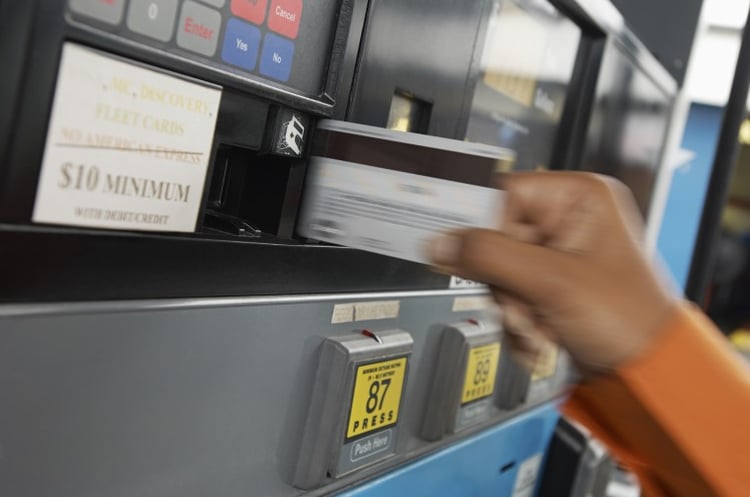
When small businesses first research fueling solutions, they may be overwhelmed by the number of options available. As most major fuel retailers provide consumer gas card options, this often becomes a focal point of the search. However, these programs lack security features, limit the sites your drivers can fuel at, and set restrictions for rebates and benefits. These limitations make it essential to evaluate commercial gas cards that are tailored specifically for business needs. Read about when you should consider switching to a company fuel card.
The problem with consumer cards
Though consumer card programs can be an ideal solution for the everyday driver, they do not have the support capabilities of a commercial gas card program. It will be difficult for your drivers to contact customer service when issues arise, causing delays on the road. These discounts often only apply for personal or family use, and your account can be cancelled if they suspect the cards are being used for different purposes. Additionally, most retailers cap the discounts at a certain number (for example, the first 200 gallons), or expire after a certain amount of time (often 60 or 90 days). These programs may also offer cash advances and the ability to purchase convenience store items, so confirm what the cards can be used for before distributing them to your employees. If you’re running a fleet with multiple vehicles, you’re going to lose that discount quickly and will still be limited to fueling at one retailer regardless of their pricing.
The two types of commercial gas cards
When you start exploring your options, you need to be repeating the mantra “location, location, location.” It’s essential to have fueling stations close to your offices or routes so drivers don’t have to waste time and gas getting to the pump. If your company opts for a universal fuel card, you can fuel up at over 320,000 locations across the United States, ensuring that your drivers are covered wherever they are.
For certain parts or the country, it might be better to opt for the second fuel card type: a cardlock program. Though you will have access to fewer sites, the program provides discounts at the pump that can make it worth your while. These per-gallon discounts automatically apply every time you fuel up at a cardlock station, and they are not restricted by a maximum limit. You will receive this discount for as long as you remain in the cardlock program. These sites are also designed specifically for commercial vehicles, making it easy for large trucks and construction equipment to fill up at their pumps. Look up locations near you to see if a cardlock program would be a good solution for your company, or if you’re better off utilizing a universal card.
Management control of commercial gas cards
One of the essential functions of a these cards is the ability to set controls and alerts to monitor your drivers’ fueling. There is an extensive collection of customizable controls to choose from, all of which allow you to adjust the parameters to suit your needs. You can restrict fueling to certain times of the day or days of the week, as well as set limits for how much can be spent per day, week, and month. At cardlock sites, you even have the ability to restrict what type of fuel to use and can set gallon limits that correspond with the size of each vehicle’s tank. Your managers can even opt to receive email receipts after each transaction, allowing them to instantly monitor each purchase. All of these controls are essential to preventing theft, and employee misuse, making them ideal for businesses.
Designed specifically for reporting and monitoring
An often-overlooked benefit of a commercial gas card is the ability to track and monitor all of your fueling activity at the click of a button. With online reporting and tools, you can get a bird’s eye view of your transactions, generate spending reports by GL codes or job numbers, simplify your IFTA tax reporting, file for off-road refunds, and more. Additionally, your managers can set up parameters for email alerts, allowing them to receive notifications for all transactions or those that differ from your usual activity.
Conclusion
While consumer cards may be a good idea for individuals, they fall short of the needs of business owners and managers. For a fueling program to run successfully, managers must be able to monitor transactions, run reports, create restrictions and alerts, and ensure that drivers will be able to fill up quickly at locations near their workplace. The expanded solutions that come with a commercial gas card program simplify fleet management.




